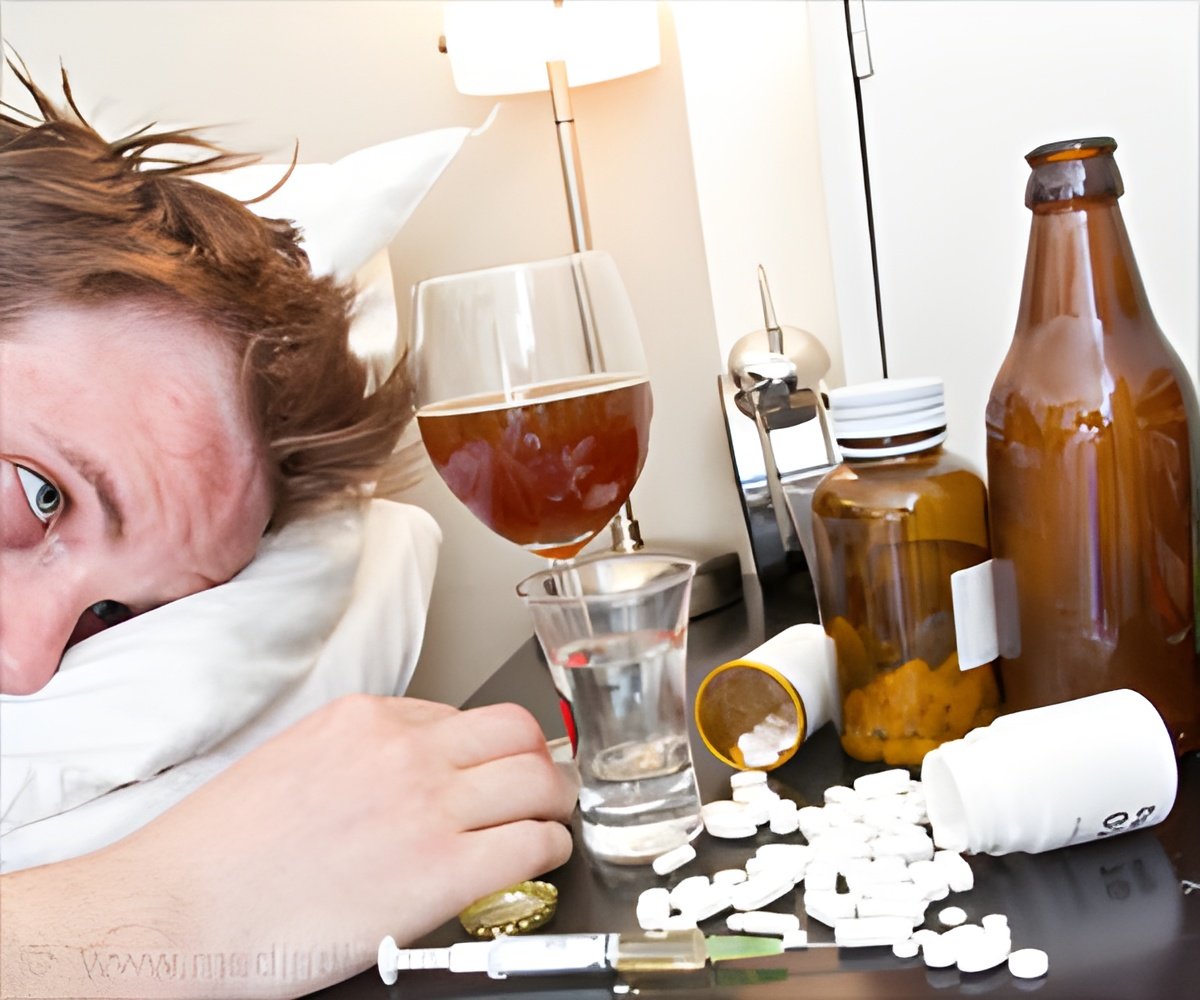
Weight loss drugs like Ozempic, can help individuals not only manage their weight but also potentially decrease their dependence on substances like opioids or alcohol.
People with opioid use disorder (OUD) or alcohol use disorder (AUD) who take Ozempic or similar medications for diabetes or weight loss have a 40% lower risk of opioid overdose and a 50% lower risk of alcohol intoxication compared to those who don’t take these medications, finds a new study.
The findings of the study are published in the scientific journal Addiction (1✔ ✔Trusted Source
The Association Between Glucose-dependent Insulinotropic Polypeptide and/or Glucagon-like Peptide-1 Receptor Agonist Prescriptions and Substance-Related Outcomes in Patients with Opioid and Alcohol Use Disorders: A Real-World Data Analysis
Advertisement
How Does Ozempic Support Weight Loss?
Ozempic is one of several medications, called glucagon-like peptide-1 receptor agonists or GLP-1 RAs, that are prescribed to treat diabetes, obesity, and other weight-related medical conditions. The medications interact with a region of the brain – the mesolimbic system – to reduce appetite and trigger satisfaction after eating.
The mesolimbic system overlaps with the brain processes that govern addictive behaviors. This overlap suggests that GLP-1 RAs and similar medications might also alter the reward-response pathways associated with substance use. ‘Similar medications’ include glucose-dependent insulinotropic polypeptide (GIP) agonists like the weight-loss medication Mounjaro.
Until now, most of the existing research into using GLP-1 RAs and GIPs to treat substance use disorders consists of animal studies and small-scale clinical trials.
Advertisement
Ozempic: A Game Changer for Opioid Use Disorder
This new large-scale human study looked at 503,747 people with a history of opioid use disorder (OUD), of which 8,103 had a prescription for a GLP-1 RA or GIP. The study found that people with OUD who had a GLP-1 RA or GIP prescription had a 40% lower rate of opioid overdose compared with those who did not have a prescription.
Advertisement
Conquering Alcohol Addiction with Ozempic
The study also looked at 817,309 people with a history of alcohol use disorder (AUD), of which 5,621 had a prescription for a GLP-1 RA or GIP. The study found that people with AUD who had a GLP-1 RA or GIP prescription had a 50% lower rate of alcohol intoxication compared with those who did not have a prescription.
This study may introduce a promising new treatment for substance use disorders.
References:
- The Association Between Glucose-dependent Insulinotropic Polypeptide and/or Glucagon-like Peptide-1 Receptor Agonist Prescriptions and Substance-Related Outcomes in Patients with Opioid and Alcohol Use Disorders: A Real-World Data Analysis – (https://onlinelibrary.wiley.com/doi/10.1111/add.16679)
Source-Eurekalert



